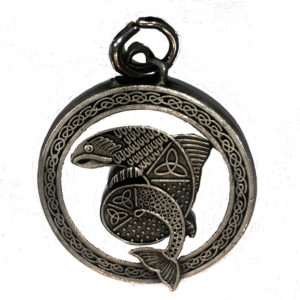Forum Replies Created
-
AuthorPosts
-
Aislingeach
ParticipantI usually Google whatever the term is, and then read everything I can find until I understand it. Thankfully, there are lots of English grammar resources available on the net. But I have yet to find a single site that would cover all my needs in that area.
Aislingeach
ParticipantGo raibh maith agut arís, a Lughaidh. Now I must study the “past subjunctive” as I have no idea what that is. I struggle with grammar terms beyond the very basic ones.
Aislingeach
ParticipantGo raibh maith agut, a Lughaidh, for checking them. So, in general, dá is used for hypotheticals, and má is used for factuals (so to speak)?
Aislingeach
ParticipantOk, I think I understand it now. Would someone please tell me if I got these correct?
If she had taken that flight yesterday, she would have arrived at 10pm. Use dá
If she took that flight yesterday, she is somewhere in town today. Use má
If she had taken that flight yesterday, she would be with us now. Use dá
If she took that flight yesterday, we will see her tomorrow. Use má
GRMA
Aislingeach
ParticipantFunny, I hadn’t thought of it in those terms. Of course, “were to see her” is proper English, but “saw her” is what’s commonly used (at least where I live), so that distinction didn’t occur to me. What I was focused on was that “dá” being used when the likely outcome of the given circumstances was expressed (i.e., the end of the sentence contains some form of “would”). But your use of “were to” makes it click really well for me. 🙂 Go raibh maith agat as an aiseolas!
Aislingeach
ParticipantI am curious about this, also. My understanding from Intermediate Irish: A Grammar and Workbook is that dá tends to express a belief about the likelihood of events described (where “would” comes into play), whereas má does not.
Dá bhfeicfeá í, bheadh iontas ort.
If you saw her, you’d be surprised.Má tá Treasa sa mbaile faoi láthair, tabhair leat í.
If Treasa is home at the moment, bring her with you.But it hasn’t quite “clicked” all the way in my head yet, so more info would be helpful.
GRMA
Aislingeach
ParticipantAha! That makes perfect sense! Thank you for taking the time to explain it so clearly! 🙂 The help is greatly appreciated.
Aislingeach
ParticipantThank you for the feedback. But I am confused as to why the genitive is required. It was my understanding that it is not the use of a possessive pronoun which triggers the use of the genitive, but whether there is a noun governing another noun. Or have I misunderstood something?
Aislingeach
ParticipantIs an mairfidh na teanga an-tábhachtach dom.
Aislingeach
ParticipantA Thuigim,
Go raibh maith agut as na focail spreagtha!
Aislingeach
ParticipantLearning Irish grammar will make you tense, put you in foul moods, and make you pull your hair out with your claws.
I struggle with the grammar constantly. While I have excellent English, I learned the grammar through osmosis rather than study, and that handicaps me in learning Irish.
Aislingeach
ParticipantMíniú go hiontach, a Lughaidh (mar is gnách!), ach tá céist eile agam, le do thoil. I am confused about when you do/do not use the “a” with bheith.
As far as I know, you can use either “a bheith” or “bheith” in all cases, as you like, there’s no difference. “Bheith” is like a shortened form of “a bheith” but both are equivalents.
Wow! I was expecting some convoluted rule(s) governing which was used when! Go raibh maith agat as an eolas, a chara! 🙂
Aislingeach
Participantbeith, usually lenited bheith is the verbal noun (= to be, being)
i would say it is always lenited, in Modern Irish.
Ah ok, that makes a little more sense then.
So far I’ve learned verbal nouns tend to be “ag (verbal noun)” but it seems that you can have it without the preposition?yes of course, in many cases you would use the verbal noun without “ag”. The group” ag+verbal noun” is mainly used to say “(to be) doing something”, ie. almost always with the verb “to be”. It’s a common mistake with English speakers to use “ag+verbal noun” everytime they have “verb+-ing” in English. But Irish is much more subtle than that 🙂
And anyway in Modern Irish you never use “ag” before “bheith” (unlike other verbal nouns). You wouldn’t say “I am being” and stuff like that in Irish.I would like to be fluent = ba mhaith liom bheith líofa
Ba mhaith liom = I would like
(to) be fluent = bheith líofa.There’s nothing in the future tense in this sentence, so you don’t need to use “beidh”.
Míniú go hiontach, a Lughaidh (mar is gnách!), ach tá céist eile agam, le do thoil. I am confused about when you do/do not use the “a” with bheith.
Aislingeach
ParticipantSmaoineamh iontach, dar liomsa.
Aislingeach
ParticipantTá sin go hiontach! GRMA as an nasc, a Aonghuis!
-
AuthorPosts
